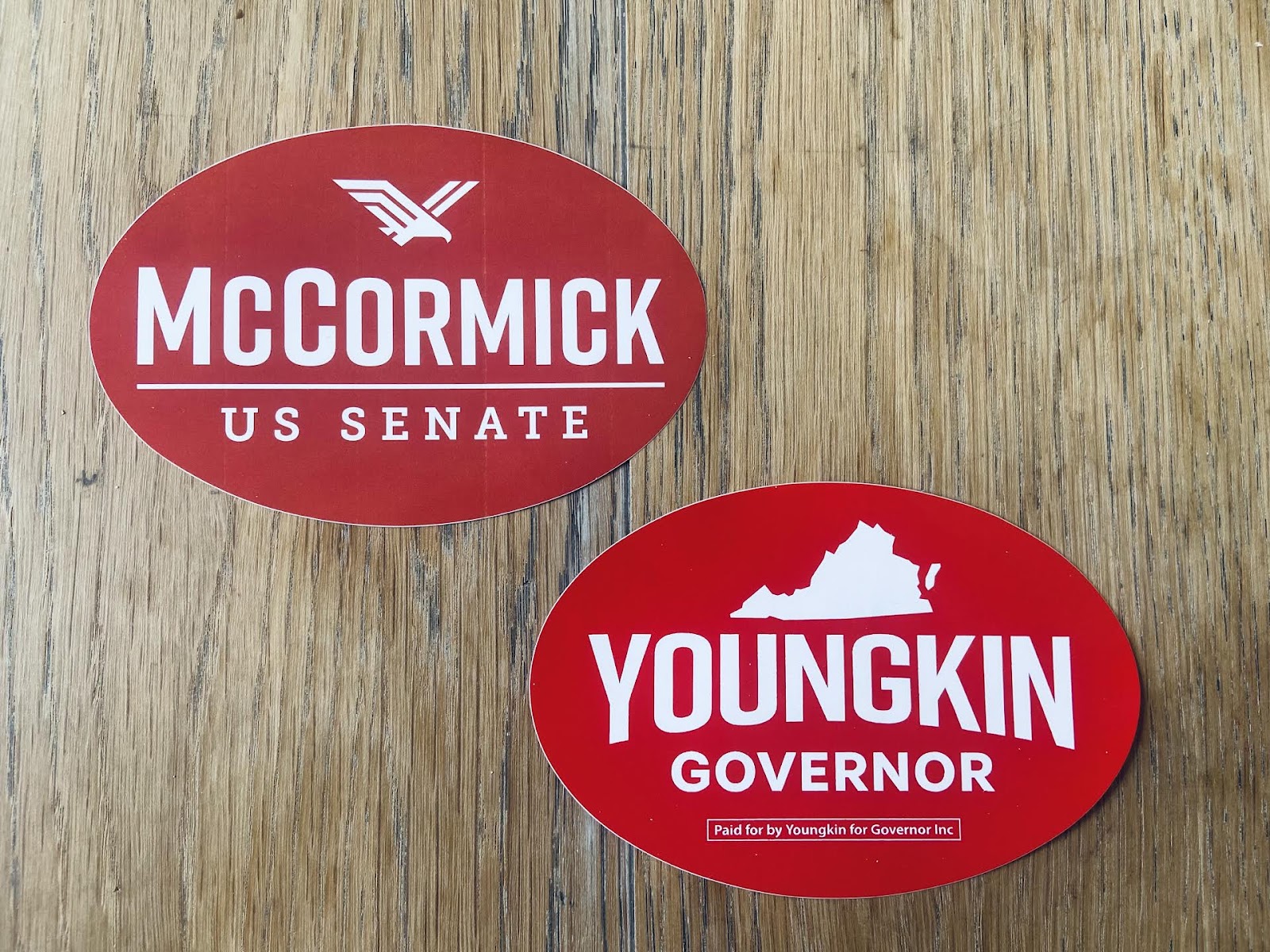A Hedge Fund Manager, a Celebrity Doctor, and Pennsylvania’s Crowded Senate Field

HOMESTEAD, Pa.— Former Army Ranger and New York Times bestselling author Sean Parnell flashes a toothy smile as he greets prospective Pennsylvania voters in Rock Bottom Restaurant & Brewery. “He’s single now,” a rally attendee named Carol tells her friend Carolyn as she points to him.
Carol and Carolyn are like many Republican voters excited about the crowded primary field in the Keystone State: They go out of their way to attend campaign events in their free time, debate anyone who will listen—including reporters—and have grassroots, word-of-mouth advertising power that can make or break candidates.
Before Parnell strolled into the bar late Wednesday evening, the two friends argued over the latest Twitter brawl between GOP Sen. Mitt Romney and former Rep. Tulsi Gabbard over whether the U.S. funded biolabs with “dangerous pathogens” in Ukraine. But now Carol’s eyes are glued to Parnell, whose slicked back hair and cowboy boots help him stand out among the crowd of mostly elderly small-town Pennsylvanians.
Tonight, though, Parnell is just the opening act. The former Trump-endorsed candidate for U.S. Senate in Pennsylvania dropped out of the race in November after losing a custody battle over his children to his estranged wife, who had accused him of domestic abuse. With his political ambitions on the backburner, at least for now, Parnell takes the stage to introduce the current Republican frontrunner in the battle for retiring GOP Sen. Pat Toomey’s seat: Dave McCormick.
On the Republican side, McCormick faces a tough primary challenge from heart surgeon and celebrity television host Dr. Mehmet Oz, who, alongside several other Republican candidates in a GOP primary on May 17, will go head to head with McCormick. In November’s general election, the winner of the primary contest will likely face Democratic frontrunner and Pennsylvania Lt. Gov. John Fetterman, a 6-foot-7-inch former mayor of a steel town.
“This is not a fight anymore between Republicans and Democrats in the Commonwealth,” Parnell tells the crowd. “This is a fight between Americans and those who would fundamentally transform the best nation, the most exceptional nation on the face of the planet.”
Parnell recites McCormick’s impressive resume, reminding voters that the former Bridgewater Associates CEO, George W. Bush administration Treasury official, and combat veteran received his Ph.D. in international relations from Princeton University, “although in this day and age, getting a Ph.D. from Princeton doesn’t mean much to me.”
Out comes McCormick: “How many of you have ever applied for a job where you get less money and your reputation’s gonna be less the day after you take the job?” he tells the crowd, inciting laughter. “The reason you apply to that job is because you think the country is headed in such a terrible direction, you want to do your part.”
His focus on the Biden administration’s failures is an effective campaign pitch during a midterm cycle already favorable to Republicans: American voters are so unsatisfied with the way things are going that President Joe Biden’s approval ratings still hover in the low 40s, as they have since last fall.
But McCormick’s also running for a seat being vacated by a Republican senator who voted to convict former President Donald Trump during his second impeachment trial. To win the GOP nomination, McCormick will have to appeal to moderates, independents, and middle-class voters—no easy feat for a former CEO of the world’s largest hedge fund.
He’s got the elevator pitch down. Last Wednesday in Homestead, he reminded voters that he’s a “seventh-generation Pennsylvanian” who baled hay on his family farm, trimmed Christmas trees, and worked as a busboy before heading to West Point and becoming captain of the school’s NCAA Division I wrestling team. (McCormick only recently moved back to Pennsylvania after spending 12 years in Connecticut.)
It’s a similar campaign strategy to that of Republican Gov. Glenn Youngkin, the millionaire former investment executive who flipped Virginia red in November by keeping the focus on pocketbook issues—and reminding voters of his humble roots flipping eggs at a local diner and attending college on a basketball scholarship.
Like Youngkin, McCormick is also hoping to win over swing voters by harping on issues that hit close to home, like rising prices and K-12 curriculum in public schools. “It’s not the America I recognize to teach our kids to be ashamed of who they are and where they came from,” McCormick said last Wednesday. (Even McCormick’s campaign stickers resemble Youngkin’s in shape, color, and font.)

But there’s one area in particular where McCormick veers from the Youngkin playbook: his willingness to invoke former President Donald Trump, under whose administration McCormick’s wife, Dina Powell McCormick, served as a national security official. He mentioned Trump’s name four times Wednesday evening, praising his “America First energy policies” and his hawkish approach toward China.
It’s unclear how a Trump endorsement might play in Pennsylvania—he won the state in 2016 but lost it in 2020. As it stands, McCormick is the frontrunner among Pennsylvania Republicans: A Fox News poll released earlier this month shows McCormick with a 9-point lead over Oz (24 percent to 15 percent). But large swaths of both candidates’ supporters say they could change their minds: 77 percent of McCormick’s and 59 percent of Oz’s, with 31 percent unsure who they will support.
Both candidates and their respective super PACs have spent the past two months hitting each other with attack ads, with Oz focusing on McCormick’s investments in China while he was at Bridgewater, and McCormick deriding Oz as a “Hollywood liberal” and a “Republican in Name Only” with too many ties to Turkey. (Oz announced last week that he will renounce his Turkish citizenship if he wins the nomination.)
The attack ads are attempts to distract voters from the fact that their policy platforms are quite similar, although McCormick, unlike Oz, is supportive of term limits and has vowed to serve for only two terms if he is elected. Both candidates claim on their campaign websites that they are supportive of voter ID laws, American energy dependence, the Second Amendment, and securing the southern border, among other traditional Republican talking points.
“They’ve been advertising at a level that you would see a couple of weeks before Election Day, not three or four months before Election Day,” Christopher Nicholas, a Pennsylvania-based Republican strategist, said in an interview last month. “So they obviously think—and their super PACs think—that the other is the main opponent.”
McCormick and Oz are so convinced of this fact that they both declined to participate in the first televised Republican primary debate last month alongside several other Republican candidates, including businessman Jeff Bartos and Trump’s former U.S. Ambassador to Denmark Carla Sands. (Neither Bartos nor Sands hit double-digit support among Pennsylvania voters in the recent Fox News poll.)
Institutionally speaking, the Republican primary is still an open field, considering the state GOP declined to endorse a primary candidate. “It’s not that surprising, especially in crowded primaries where there’s no obvious frontrunner there,” Toomey, the retiring Republican U.S. senator, said in a brief interview with The Dispatch last month. He said he hasn’t decided whether he will make an endorsement.
As it stands, the Republican nominee will likely go head-to-head in the general election with Fetterman, who is leading the Democratic primary in both fundraising and voter surveys. FEC filings show that Fetterman raised an astonishing $12 million in 2021 and ended the year with $5.3 million on hand, lightyears ahead of Dr. Oz, the second-highest fundraiser who raked in $5.8 million and ended the year with $1 million on hand.
Last year’s money race excluded McCormick, who waited until after the January 1 FEC campaign filing deadline to announce his candidacy. McCormick’s personal fundraising numbers won’t become public until the next FEC filing deadline in April, weeks before the Republican primary.
Until then, expect McCormick to continue making his kitchen table approach to Pennsylvania voters. “I see some gray hair in the audience, and I want to remind you of 1979,” McCormick told voters last Wednesday before invoking the “double digit inflation,” “double digit unemployment,” and “gas lines” that characterized Jimmy Carter’s presidency, just like skyrocketing inflation and gas prices are coming to define Joe Biden’s.
“Jimmy Carter gave us Ronald Reagan. And why am I telling you that?” McCormick said as he wrapped up. “Because leadership matters.” In just a few weeks Pennsylvania primary voters will determine whether that campaign pitch sticks.